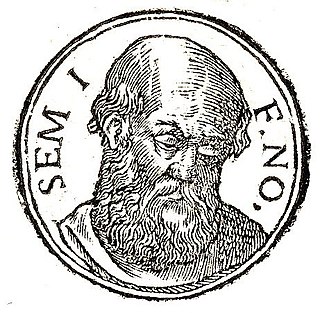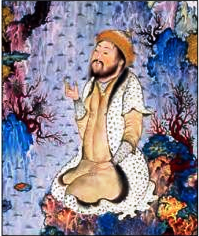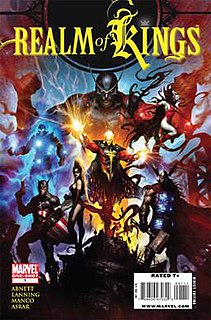Related Research Articles

The Book of Samuel is a book in the Hebrew Bible and two books in the Christian Old Testament. The book is part of the narrative history of Ancient Israel called the Deuteronomistic history, a series of books that constitute a theological history of the Israelites and that aim to explain God's law for Israel under the guidance of the prophets.

The Book of Kings is a book in the Hebrew Bible and two books in the Christian Old Testament. It concludes the Deuteronomistic history, a history of Israel also including the books of Joshua and Judges and the Books of Samuel.

According to the Hebrew Bible, the Kingdom of Israel was one of two successor states to the former United Kingdom of Israel and Judah. Historians often refer to the Kingdom of Israel as the "Northern Kingdom" or as the "Kingdom of Samaria" to differentiate it from the Southern Kingdom of Judah and the united monarchy.

Solomon, also called Jedidiah, was, according to the Hebrew Bible or Old Testament, a fabulously wealthy and wise king of the United Kingdom of Israel who succeeded his father, David. The conventional dates of Solomon's reign are about 970–931 BCE, normally given in alignment with the dates of David's reign. He is described as king of the United Monarchy, which broke apart into the northern Kingdom of Israel and the southern Kingdom of Judah shortly after his death. Following the split, his patrilineal descendants ruled over Judah alone.

Shem was one of the sons of Noah in the Hebrew Bible and the Islamic literature.

Ragnar Lothbrok or Lodbrok is a legendary Viking hero, as well as a legendary Danish and Swedish king. He is known from Old Norse poetry of the Viking Age, Icelandic sagas, and near-contemporary chronicles. According to the traditional literature, Ragnar Lothbrok distinguished himself by conducting many raids against the British Isles and the Holy Roman Empire during the 9th century. He also appears in Norse legends, and according to the legendary sagas Ragnarssona þáttr and Sögubrot af nokkrum fornkonungum, Ragnar Lodbrok's father was the legendary king of the Swedes, Sigurd Ring.

The Shahnameh or Shahnama is a long epic poem written by the Persian poet Ferdowsi for Sultan Mahmud of Ghazni between c. 977 and 1010 CE and is the national epic of Greater Iran. Consisting of some 50,000 "distichs" or couplets, the Shahnameh is one of the world's longest epic poems. It tells mainly the mythical and to some extent the historical past of the Persian Empire from the creation of the world until the Muslim conquest in the seventh century. Iran, Azerbaijan, Afghanistan, Tajikistan and the greater region influenced by Persian culture such as Armenia, Dagestan, Georgia, Turkey, Turkmenistan and Uzbekistan celebrate this national epic.

Diarmait mac Cerbaill was King of Tara or High King of Ireland. According to traditions, he was the last High King to follow the pagan rituals of inauguration, the ban-feis or marriage to goddess of the land.
Éber Finn, son of Míl Espáine, was, according to medieval Irish legend and historical tradition, a High King of Ireland and one of the founders of the Milesian lineage, to which medieval genealogists traced all the important Gaelic royal lines.
Érimón, son of Míl Espáine, according to medieval Irish legends and historical traditions, was one of the chieftains who took part in the Milesian invasion of Ireland, which conquered the island from the Tuatha Dé Danann, and one of the first Milesian High Kings.
Hiram Abiff is the central character of an allegory presented to all candidates during the third degree in Freemasonry.
Ban Biao, courtesy name, was a Chinese historian and politician born in what is now Xianyang, Shaanxi during the Han Dynasty. He was the nephew of Consort Ban, a famous poet and concubine to Emperor Cheng.
The non-canonical books referenced in the Bible includes non-Biblical cultures, and lost works of known or unknown status. By the "Bible" is meant those books recognised by most Christians and Jews as being part of Old Testament as well as those recognised by Christians alone as being part of the Biblical apocrypha or of the Deuterocanon.

The Mambo Kings Play Songs of Love is a 1989 novel by Oscar Hijuelos.
The Book of the Kings of Judah and Israel was separated into the two books of I Kings and II Kings in the Old Testament. The book is described at 2 Chronicles 16:11. The passage reads: "And, behold, the acts of Asa, first and last, lo, they are written in the book of the kings of Judah and Israel." It is also referenced at 2 Chronicles 24:27; "The account of his sons, the many prophecies about him, and the record of the restoration of the temple of God are written in the annotations on the book of the kings. And Amaziah his son succeeded him as king."
The [Book of the] Acts of Solomon is a lost text referred to in 1 Kings 11:41, which reads:

Siāmak is a character in Shahnameh, the national epic of Greater Iran.
Beor is a name which appears in relation to a king and a diviner. Because the two names vary only by a single letter, scholars have hypothesized that the two refer to the same person.
Ayadgar-i Zareran, meaning "Memorial of Zarer", is a Zoroastrian Middle Persian heroic poem that, in its surviving manuscript form, represents one of the earliest surviving examples of Iranian epic poetry.

"Realm of Kings" is a crossover comic book storyline published in 2010 by Marvel Comics. Written by Dan Abnett and Andy Lanning, it is a follow-up to the 2009 storyline "War of Kings" and introduced the setting known as the Cancerverse.